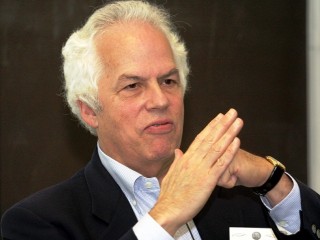
Stanley B. Prusiner biography
Date of birth : 1942-05-28
Date of death : -
Birthplace : Des Moines, Iowa, United States
Nationality : American
Category : Science and Technology
Last modified : 2011-09-20
Credited as : neurologist, biochemist, Nobel Prize for Physiology or Medicine
0 votes so far
Frustrated by the inability of scientists to find evidence of the virus that had been presumed to cause scrapie and its human equivalent, Creutzfeldt-Jakob disease (CJD), Prusiner theorized in 1982 that these diseases are instead caused by prions, a term he coined to describe infectious protein. Even after the prion protein was positively identified in Prusiner's laboratory the following year, his notion of a new means of disease transmission was not widely accepted for nearly a decade.
Prusiner was awarded the Nobel Prize for Medicine in 1997. His findings have had profound impact on research into diseases now known to be caused by prions, including new variant (nvCJD) and bovine spongiform encephalopathy (BSE) or "mad cow disease". Prusiner's work has also provided a promising field of research into Alzheimer's and Parkinson's, diseases which seem to share important characteristics with prion-derived diseases. He currently holds two professorships at the University of California at San Francisco, and a third across the Bay at Berkeley.
Prusiner was elected to the National Academy of Science in 1992 and to its governing council in 2007. He is also an elected member of the American Academy of Arts and Sciences (1993), the Royal Society (1996), the American Philosophical Society (1998), the Serbian Academy of Sciences and Arts (2003), and the Institute of Medicine.
Awards:
Dickson Prize 1992
Lasker Award 1994
Wolf Prize in Medicine 1996
Nobel Prize for Medicine 1997
American Academy of Arts and Sciences
American Philosophical Society
National Academy of Sciences
















